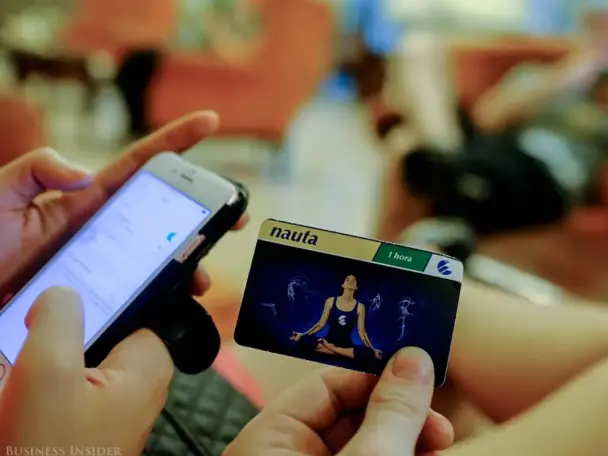
Over winter break, I had the opportunity to partake in a mini three-week study-abroad experience in Havana, Cuba. I was incredibly excited to take an anthropology class on Cuban and Caribbean cultures and peoples, refresh some of those long-lost Spanish skills from high school, and most of all, learn about a history and culture that so often gets told from a singular and narrow perspective in American classrooms.
As I stepped off the plane and walked into the José Martí International Airport in Havana, excited and slightly nervous to meet my classmates and fellow travelers, I immediately reached for my phone so that I could text my parents that I landed safely. There was just one problem: I had no Wi-Fi, no data, and no way to directly contact my family. Yes, this is totally a classic tourist experience and nothing to truly fret over; no need to play a tiny violin for me. Plus, I had already been somewhat prepared for this based on the research I had been doing about the trip. I learned that Wi-Fi is limited in Cuba, and that one often needs to go to designated Wi-Fi parks with a purchased Wi-Fi card in order to access it. However, I did find it mildly urgent to find these Wi-Fi cards so that I could alert my family and friends of my safe arrival.
As the trip progressed, and I started establishing very close friendships, I realized that being unplugged and off-the-grid actually facilitated these relationships. When we would have big group dinners, nobody was looking down or staring at their phones because they couldn’t! They had no reason to! At night before bed, my roommate and I would spend hours talking or journaling instead of texting or FaceTiming our friends from home. Yet, what does this digital freedom really mean when many Cubans themselves don’t have the choice to be digitally detoxed? They just are, because of the restrictions imposed on them by their government.
To briefly summarize the Wi-Fi situation in Havana, internet access is largely government-run and not free. Cuba is considered one of the most offline countries in the Western hemisphere. However, since 2018, ETECSA, the state-owned telecommunications company and the main provider of internet access on the island, has offered 3G mobile internet access to citizens.
Still, a month’s worth of data from this service costs around $7, which is roughly 23% of a Cuban’s average state wage per month in 2018. Do bear in mind that Cuba’s economy is in constant fluctuation, and exchange rates vary quite often. At the same time, Wi-Fi in Cuba still remains relatively inaccessible and expensive.
It is important to keep in mind that this lack of internet access is a product of complex systemic issues that are tied to Cuba’s political history and the revolution in the 1950s. Fidel Castro believed that increased access to the internet could potentially undermine his power by raising awareness about the lack of basic rights in Cuba.
With this in mind, I think one of the biggest ideas that I took from this trip is that a digital detox may be more of a privileged and political phenomenon than I ever thought it was. Being able to disconnect from something that you will likely always have consistent access to is a drastically different experience than not knowing—or having very little knowledge of—what internet access can achieve. For some people, being unplugged is a voluntary decision that tends to take place for a brief period of time, but for many Cubans, this is a constant reality.
I would also like to note that this digital divide is an issue in America, too. According to the National Telecommunications and Information Administration, around one in five American households lacks internet access. This social issue has serious consequences when it comes to building an equitable society with opportunities for everyone to thrive economically. It is beyond disappointing that Cuban citizens are suffering economically because they can’t provide technological services in tourism infrastructure, the ones that American tourists often perceive as a basic expectation.
Overall, it is confusing, frustrating, and disheartening that being offline for a tourist can be a refreshing and rejuvenating experience, but for a Cuban citizen, it can quite literally represent the opposite of feeling or being liberated.
Zara Skolnik is a member of the class of 2026 and can be reached at zskolnik@wesleyan.edu.


Leave a Reply